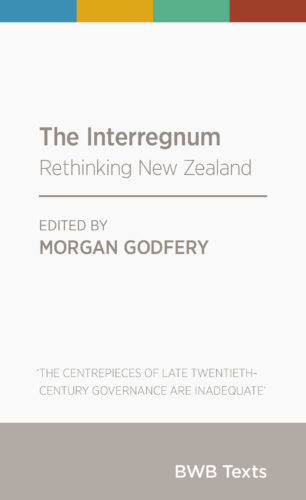
This reading carries on from here.
The seventh essay in The Interregnum is ‘Contributing to Public Life From Afar’, by Lamia Imam. If the essays so far had mostly managed to be worryingly Marxist without being alarmingly so, this essay leaps right into the deep end with no restraints at all.
In an effort that stretches credibility beyond breaking point, Imam complains about the difficulty she has found being accepted by New Zealanders as one of our own, despite literally being an anchor baby who spent almost all of her formative years overseas.
Echoing the complaints of Golriz Ghahraman, who also spent most of her formative years overseas being raised by non-Kiwis, Imam describes being born in New Zealand only to move away with her parents while still a toddler, only to wonder why she isn’t welcomed with open arms when she decides that she is a New Zealander many years later when she briefly returns to study (before shifting off again).
The question she does not confront is: why should Kiwis form close social bonds with people who are liable to up and leave the country forever, rendering that social investment worthless? If a person has all of their family overseas, and are themselves getting educated overseas, the likelihood of them still being here in 25 years is very low, at least in comparison to anyone else.
Really this essay should be seen for what it is, which is an effort to destroy the social bonds between New Zealanders for the sake of making us more easily exploitable by the international globalist class of which Imam is a member. To this end, it uses a number of globalist rhetorical devices that have previously been successfully employed towards the destruction of the Western working class.
One of the most obvious of these is crying about the “racism” she has faced on account of being Muslim (which is, of course, not a race). Another is the astonishing claim that people who don’t consider her to sound like a Kiwi on account of her admitted lack of a Kiwi accent are “ignorant”.
Claiming to be “hyper-aware of her privilege”, Imam appears to make no effort whatsoever to understand the thinking of the New Zealanders she claims to be her countryfolk. Relating an incident where a highly distressed man at a Community Law Centre “started screaming at me about immigrants, and specifically Muslims… ruining his job prospects,” absolutely zero effort is made to commiserate with one of the many Kiwis who have lost out from globalism.
Instead she complains that “acceptance was hard to come by,” as if the rest of us ought to have been grateful for the presence of a Muslim immigrant – a sight that has heralded the impending destruction of communities and nations all around the world for 1,300 years.
It seems that, according to Imam, Kiwis no longer have the right to decide for themselves what a Kiwi is. That can apparently now be decided by people who have lived three years of their life in New Zealand and who do not have Kiwi ancestors. Now you can just step off a plane and say you’re a Kiwi and that’s as good as anyone else can do.
As a reader I wondered how welcoming Imam would be if I turned up at the funeral of a wealthy family member, declared myself to be one of their tribe and demanded a share of the family fortune? Would I also find that “acceptance was hard to come by”?
In the end, I gave up when I read “Ordinary Kiwis supposedly do not care about identity politics, which suggests to me that they don’t have an identity.” No-one who, while claiming to be a Kiwi, writes something that stupid is worth reading.
In summary, this poorly-written effort rambles, does not employ logic and frequently contradicts itself, but the essay does raise many questions that are yet to be meaningfully discussed in the West, such as: who are we allowed to exclude?
Answering those question is not for The Interregnum. This book that preaches inclusivity as the highest of virtues has expressly excluded right-wing and working-class voices.
Fair enough on excluding the right-wing, if one wants to restrict the dialogue to the voices of the young, but why provide a platform for a jetsetting middle-class professional woman while denying a platform to working-class white people? It seems very strange that a book can claim to be speaking for the underdog but deny that underdog the right to speak about the issues that are causing them to suffer.
